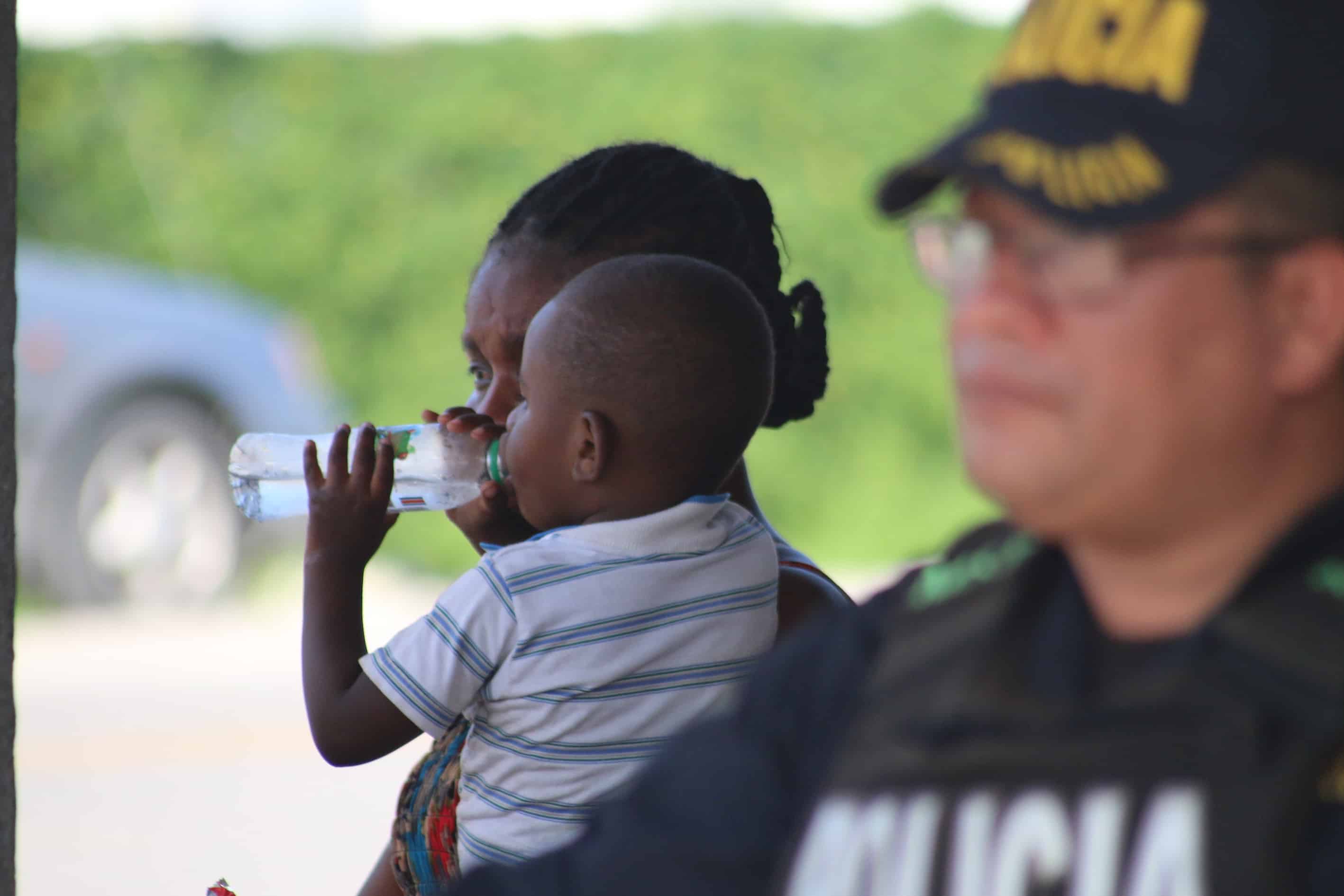PASO CANOAS, Puntarenas — At just 7 years old, Tiba has now been on a trying journey through unknown lands for 48 days, along with her sister and mother.
They left their home in the Democratic Republic of the Congo in late February, crossed Angola, and then traveled by boat to Brazil. They then walked across that massive country to Peru.
Sometimes on foot, other times by bus, they cross through Ecuador, Colombia and Panama, finally arriving at the Costa Rica border. Here they’re going into their third week in limbo, sleeping on the street under a small tin roof outside the Costa Rican immigration offices, as if waiting for a miracle, waiting for Costa Rica to let them travel through the country on their way to the United States.
Tiba is not the only African child walking the hot streets of this Central American border town, which straddles Costa Rica and Panama near the Pacific Coast. Tico Times reporters met nine migrant children under age 12 in Paso Canoas.
Costa Rican authorities have no official data on the number of undocumented migrant children here.
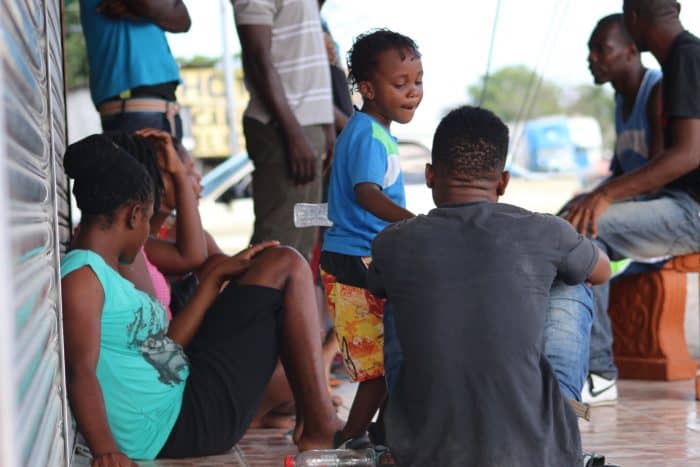
Bembo, at age 2, probably has little idea just how many kilometers he has traveled with his parents in search of the American Dream.
These children and their families are part of a group of at least 100 Africans living on the streets or in hotel rooms in Paso Canoas. They have made it this far traveling through most countries without visas.
See also: More than 100 African migrants caught entering Costa Rica illegally
Now they’re hoping Costa Rican immigration authorities will grant them transit visas, even though officials have already said they won’t. If they risk trying to sneak in, they face highway checkpoints and a border police force recently beefed up to handle the surge in illegal immigration around Paso Canoas.
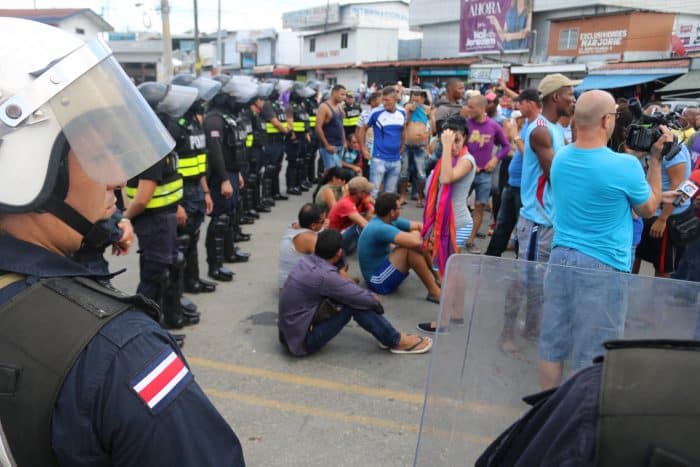
On Thursday 12 Africans, including two mothers with small children, were deported to Panama after being caught without documents several days earlier in a nearby border community.
Most African migrants here don’t have identification and speak little to no Spanish, or English for that matter, making travel and communication especially complicated.
Plus, the vast majority have run out of money. African migrants here said the trip to Costa Rica had cost about $6,000.
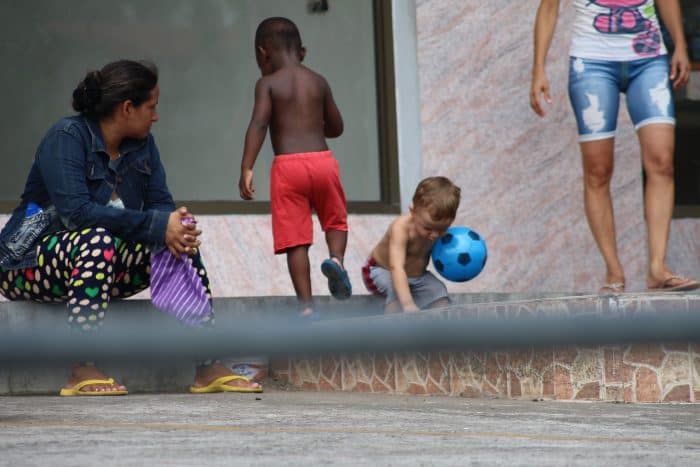
The Cubans
Three-year-old Miguel kicks around a plastic soccer ball with his friend Frank, age 5, in front of a hotel. The rooms are filled with Cubans harboring hope that Costa Rica will give them the opportunity to advance towards Nicaragua.
The hotel is located on the Panamanian side of Paso Canoas, just 1 kilometer from the Costa Rican border. While the adults walk towards the border to demand passage, two dozen Costa Rican riot police stand by tensely.
See also: Cuban migrants storm Costa Rica-Panama border demanding to pass
The children and their mothers face the long wait washing clothes or with games.
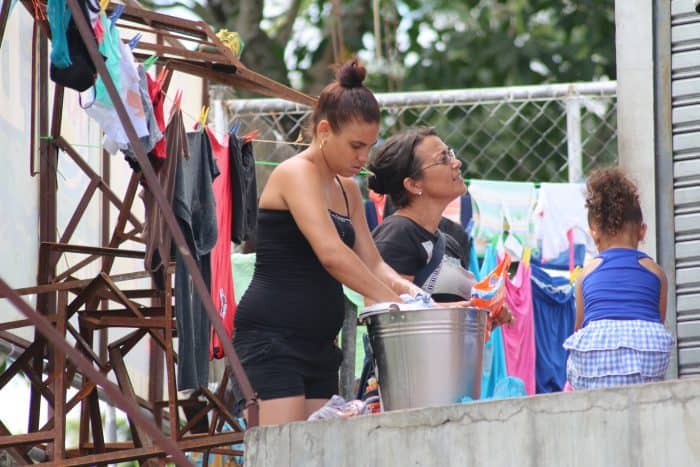
On the Panamian side, according to Cuban migrants here, there are about 19 children under 12 among them. Neither Panamanian nor Costa Rican authorities have data that could corroborate the number.
In total, more than 800 Cubans are stranded here; Costa Rica will not receive them or allow them to pass through to Nicaragua. Panama will not deport them back to Cuba.
Manolo Castilla, from the Cuban city of Cienfuegos, said he and others were confounded by their situation. “We just want to continue on our way, we don’t want to stay in Costa Rica,” he said.
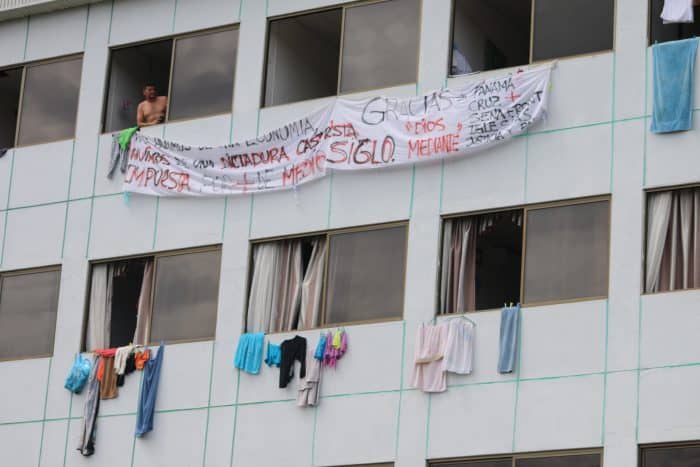
Most have been walking back and forth between Panama and Costa Rica — within the town of Paso Canoas — for two weeks. They say they’ve run out of money and patience.
“I have spent almost $5,000 since I left Cuba,” Hermes Ordoñes of Havana told The Tico Times. “I need to get to the United States. Freedom is there, my future is there, and my family’s future is there.”
Both African and Cuban migrants here say they left their homes to escape poverty, violence and dictatorship. But for many, their escape has turned into a slow torment of uncertainty.

